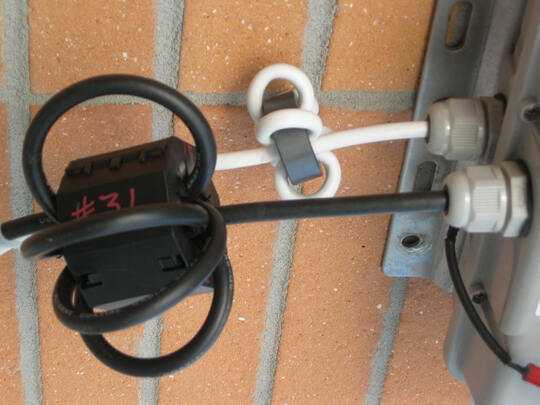The cause of these noises is electromagnetic interference. Common phone radio frequencies can generate a signal in unshielded audio wiring through electromagnetic induction. This undesired signal is amplified by the speakers, producing an audible (and nasty!) noise.
An easy way to stop this noise is to use a ferrite choke on the wiring, to block higher frequencies.*
These should be placed close to the speaker for maximum effectiveness. There are two main types that are easy to apply:
Snap on ferrite beads
These typically come in a plastic casing that splits in half, and can be snapped around your wiring. They are easy to apply.
Toroidal ferrite cores
These come in a toroidal ('doughnut') form. Just loop the wiring through a few times.

There is no set number of turns, just add more until the interference stops.
Ferrite chokes/beads/cores are easily and cheaply available from many sources. If you have an old USB cable or similar, there are often bulges near the ends. You can rip a ferrite bead off of that. PSUs and computer motherboards also often contain ferrite cores, which can again be ripped off for this purpose. Alternatively, many hobby/electronics/online stores carry them.
*As a side note, higher quality speakers will often include these filters. It's normally the cheaper speakers, especially those sold with/for desktop computers, that get effected.

This would work for microphones too, wouldn't it? – BlueRaja - Danny Pflughoeft – 2012-06-04T14:57:09.677
@BlueRaja I've never personally tried, but it should work in theory. That source also includes more precise methods than "grab a ferrite core and wrap a few turns around it". This is only for the large things like phone interference; there's many smaller sources of EMI that aren't really audible without extreme amplification, or close analysis of recorded audio.
– Bob – 2012-06-04T15:13:13.4431Most microphone cables i've seen are significantly better than your average cheapie speaker or headphone cable, and have shielding. Good headphones use the same sort. – Journeyman Geek – 2012-06-05T04:03:32.600